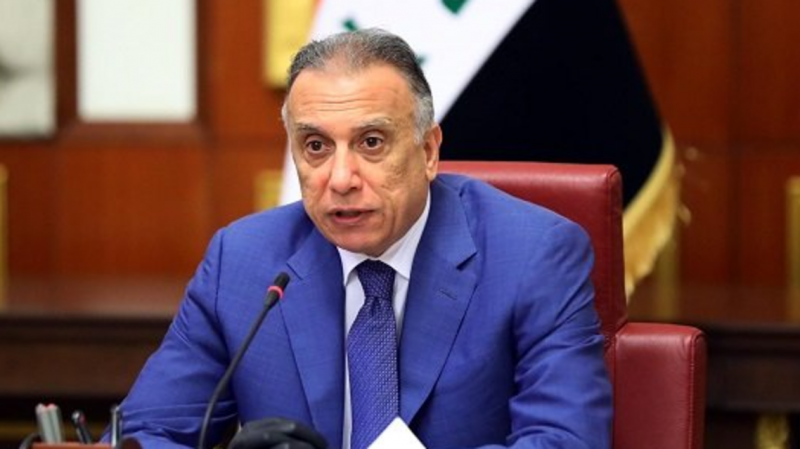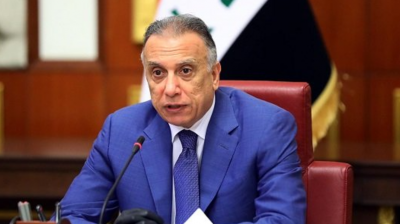As Iraq isolates itself from the outside world for two days coinciding with the polling day in the elections next month, following new measures approved by Prime Minister Mustafa Al-Kadhimi today, he announced that he would personally oversee electoral security. He emphasized that no violations affecting the electoral process and its results would be allowed. This was stated during a cabinet meeting today, where a statement from Al-Kadhimi's media office, reported by local Iraqi media, noted that the Prime Minister considered the position of cleric Ali Al-Sistani, who supports participation in the elections, a major motivator for the success of the electoral process.
"We fulfilled our promise," he added, stating that the Iraqi government had honored its commitment regarding the elections and provided all support to the electoral commission, which had been hosted several times to ensure all its requirements were met. He also mentioned that he would personally oversee electoral security, pledging not to allow any violations that could affect the process.
He announced the establishment of committees to monitor violations by candidates and parties, asserting that any case of violation would be referred to the judiciary and the electoral commission. He also committed to issuing a special amnesty for minors and women, excluding cases of terrorism, corruption, and the misuse of public funds.
He acknowledged that there were some shortcomings in the government's work alongside numerous positives, reiterating that the government's goal was to conduct early elections and provide a conducive environment for them, as well as take bold measures to correct situations and put Iraq on the right track.
**Salih: Elections Should Express the Will of the People**
Al-Kadhimi's remarks coincided with statements made by the Iraqi president, Barham Salih, stating that the upcoming elections should be fair and reflect the people's will. In an interview with "Al Arabiya," he mentioned that the problems of previous elections led to a loss of trust in the voting processes, emphasizing readiness to prevent those who seek to divert the elections from their course, and stating that the call for early elections was not an easy matter, yet it was adhered to. He said, "A comprehensive reform of the governance system is required to ensure good governance."
He also indicated that the new election law is fairer than the previous one, noting that it provides for real representation regardless of each person’s perspective.
**New Electoral Law**
It is scheduled for legislative elections in Iraq to take place on Sunday, October 10, with the government and the commission announcing the completion of technical, logistical, and security preparations for that. The High Security Committee for the elections has approved directives concerning polling day related to airports and border crossing points.
The committee spokesperson, Brigadier General Ghalib al-Atiya, stated that movement between provinces would be restricted and that all airports and border crossings would be closed from October 9 to the morning of October 11. He explained that these measures have been implemented to ensure full protection of the electoral process, according to the Iraqi News Agency (INA).
He also noted that the movement of motorcycles within cities would be prohibited, while allowing the movement of other vehicles to facilitate voters' transportation from their homes to polling stations, confirming that further measures would be taken to assist individuals with disabilities in reaching polling centers.
The electoral security committee issued directives and orders to subcommittees in all provinces. Following the new electoral law, closed electoral districts will be adopted, allowing nominations without the need to join lists, and limited to a small number of candidates according to the population of each district.
It is noteworthy that the Independent Electoral Commission previously called on approximately 25 million voters to participate in the early elections, in which over 3,200 candidates are competing for 329 seats, of which 25 percent are allocated for women. Political blocs are expected to nominate notable figures within 83 electoral districts; however, situations often change, creating new alliances after the results are announced, leading to shifts in political blocs within the parliament.




